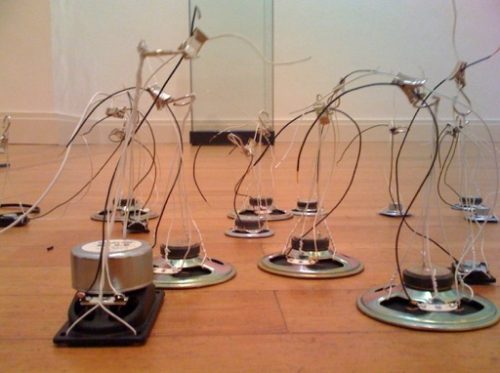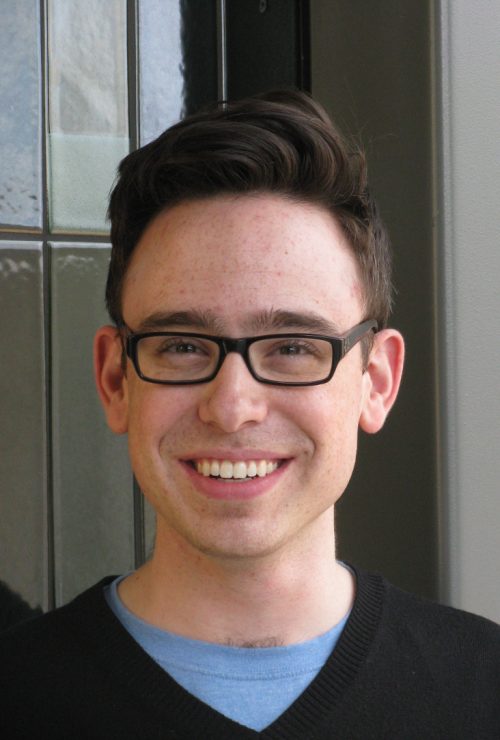By Erik Elmgren
This year, the Eastman Computer Music Center (ECMC) has undergone a rebranding process and now is known as the Eastman Audio Research Studio (EARS). In addition to this new title, EARS has expanded to another room at the school, which will house state-of-the-art audio equipment enabling new learning and performance opportunities for EARS students, faculty, and guest artists. As a way to celebrate the opening of the new room, EARS will present a concert this week featuring electronic music from the Darmstadt Festival (details included below). To get an inside look at these exciting developments, I spoke with Eastman student and composer Alex Stephenson.
Can you tell us a little bit about yourself and your degree program here at Eastman?
I’m a composer and musician originally from the Philadelphia area. I previously studied at the University of Chicago and as a Fulbright scholar at the Guildhall School of Music & Drama in London; currently, I’m pursuing the MA in composition at Eastman.
How did you first become involved with EARS?
I became involved from my very first day on campus as one of the studio’s graduate assistants. My work with EARS has been a pivotal part of my experience as an Eastman student.
What do graduate assistants in the EARS program do?
Graduate Assistants lead weekly lab sessions for EARS courses; these provide an opportunity to further explore concepts discussed in class and apply them to each student’s individual musical projects. We are also involved in the day-to-day administrative needs and upkeep of the studio, and we work together as a team to provide technical setups for EARS events.
What sort of music does participation in EARS allow you to experience and compose?
It’s challenging to answer that question fully—I see EARS as a very diverse and non-dogmatic studio, and we explore music of many different aesthetic and technical points of view. Most recently, EARS has enabled me to compose a work for piano and live electronics, which will be premiered on the studio’s November concert in Hatch Recital Hall.
Can you tell me what it is like to take an EARS course or attend an EARS seminar?
Courses at EARS balance multiple types of learning. On the one hand, electronic music is (despite its relative youth) a practice with a tremendously rich history, and students in the courses have the opportunity to learn about achievements and seminal works in the field to which they might not otherwise be exposed. On the other, each student’s own creative work plays a crucial role, and the courses culminate in end-of-semester concerts featuring student compositions.
How has the rebranding and expansion to a new space affected your student experience?
Both suggest to me that even more opportunities are ahead! The studio’s more open name and the inauguration of its new multi-channel projection space are exciting to me as a student and as a composer.
Can you tell us a little bit about those upcoming opportunities and events?
Friday’s program will consist of works for electronic media associated with the Darmstadt International Summer Courses for New Music, which is celebrating its 70th anniversary this year. Featured composers include Eimert, Cage, Nono, Stockhausen, Ligeti, and Yuasa.
We have so many exciting events in store this semester, including the Darmstadt anniversary concert on Friday, a performance by the renowned pianist Shiau-uen Ding and electronic music pioneer Miller Puckette on October 3, our semesterly concert on November 9, and a recital featuring the eminent composer Trevor Wishart on November 30. Join us!
The Eastman Audio Research Studio presents Electronic Music 1952-2010 at the Darmstadt Festival (70 Years Internationale Ferienkurse für Neue Musik, Darmstadt):
Friday, September 23, 2016 – 7:30 p.m.
ESM 514
For more information visit the EARS website.
Eastman composition student Alex Stephenson

